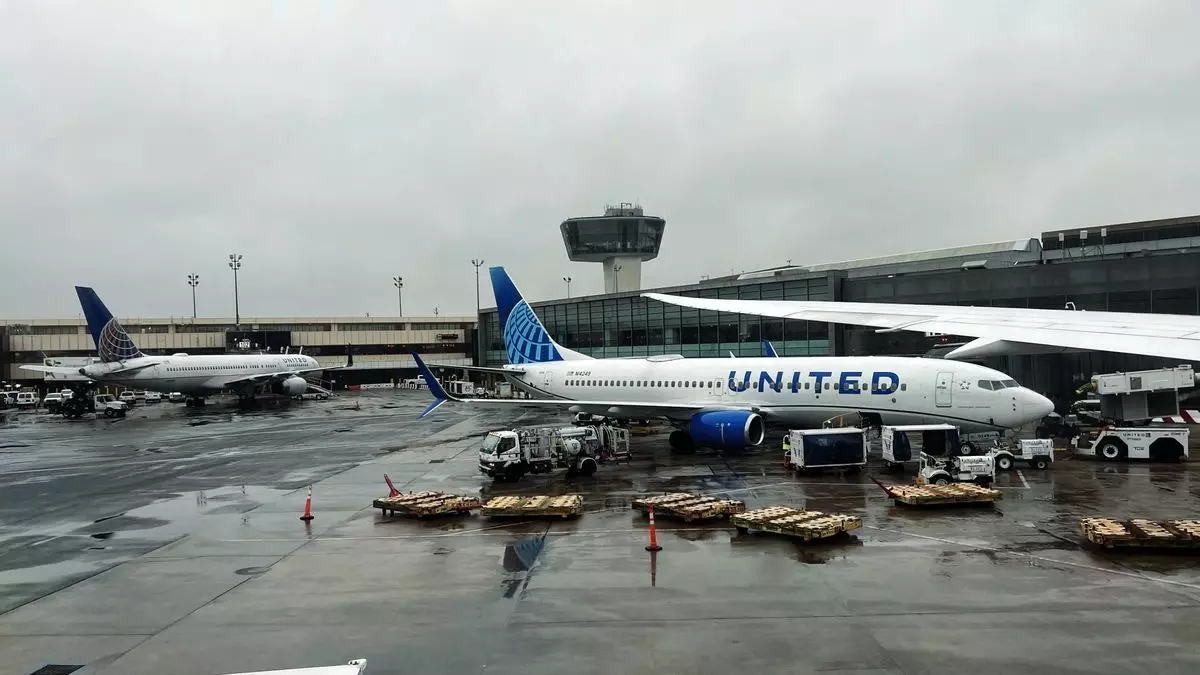The travel chaos at Newark Liberty International Airport has reached alarming levels, marked by significant flight delays and cancellations that have left passengers stranded and frustrated. With New Jersey’s economy heavily reliant on air travel, this crisis is not just an inconvenience but a symptom of broader systemic failures within the air traffic management system. At the heart of the turmoil is a critical shortage of air traffic controllers, a problem exacerbated by the outdated technology that governs our skies.
Senate Minority Leader Chuck Schumer has called for an extensive investigation into this “chaos,” seeking accountability for the disruptions that have become commonplace at one of America’s busiest airports. His advocacy reflects the growing angst among national constituents who expect reliable air travel, especially during peak seasons. Instead, they are met with uncertainty, which threatens not only their travel plans but also the economic vitality of the region surrounding Newark Airport.
The Strain of Staffing Shortages
As reported, the FAA has attributed staggering delays—reportedly as high as four hours for arriving flights—to a dual crisis of air traffic controller shortages and adverse weather conditions, specifically heavy cloud cover. The situation is worsened by controllers taking necessary time off to recuperate from the stress associated with recent outages affecting operations. This is a ticking time bomb; while we may speculate over temporary weather disturbances, the root issue clearly lies in the long-standing deficiencies of our air traffic control system.
United Airlines has taken dramatic steps in light of these conditions, announcing it will cut 35 daily flights from its Newark schedule as a strategy to mitigate the impact of these operational shortcomings. This decision reflects a broader trend impacting the airline industry, which is already navigating economic uncertainty amid trade disputes and fluctuating consumer confidence. Airlines are being forced to make tough decisions that ultimately lead to higher passenger frustration and long-term reputational damage.
A Call for Comprehensive Infrastructure Reform
The air travel situation reveals a critical need for not just additional controllers, but also a comprehensive update to the air traffic management infrastructure. Critics have pointed out that past administrations have recognized the “obsolete” nature of the current system but have failed to implement adequate solutions. While there are initiatives aimed at recruiting new controllers, including potential incentives to curb early retirements, these efforts seem inadequate in face of mounting pressures.
United’s CEO Scott Kirby highlighted the technology failures impacting Newark Airport, emphasizing that the “more than one-fifth” of controllers walking off the job furthers the staffing crisis already besieging air traffic management. The National Air Traffic Controllers Association has echoed this sentiment, acknowledging that while new recruitment is vital, the dire need for technological upgrades cannot be overstated. Without a drastic overhaul, the system will continue to falter under pressure—leaving travelers caught in the crossfire.
Potential Economic Fallout
United’s decision to trim its Newark flight schedule comes during a period of heightened uncertainty for the airline industry. The looming concerns regarding the economic impacts of trade wars and fluctuating markets exacerbate the situation, causing potential travelers to reconsider their travel plans for both business and leisure. The uncertainty surrounding U.S. air travel dynamics poses a significant threat not only to individual airlines but to the entire national economy.
In a bid to prepare for the financial uncertainties ahead, United has taken the unusual step of issuing dual forecasts, one accounting for economic recession conditions and another for a stable economy. Such measures not only demonstrate the volatility in the industry but also reflect an urgent need for an adaptive regulatory framework. If the air travel infrastructure does not evolve to meet current challenges, the ramifications will extend far beyond mere inconvenience, affecting job security, tourism revenue, and broader economic health.
Navigating this turmoil requires more than just temporary solutions; it demands a complete rethinking of how we manage and prioritize air traffic. The time for reactive measures is over; proactive, innovative reforms are a necessity for ensuring the skies remain accessible and secure.


Leave a Reply